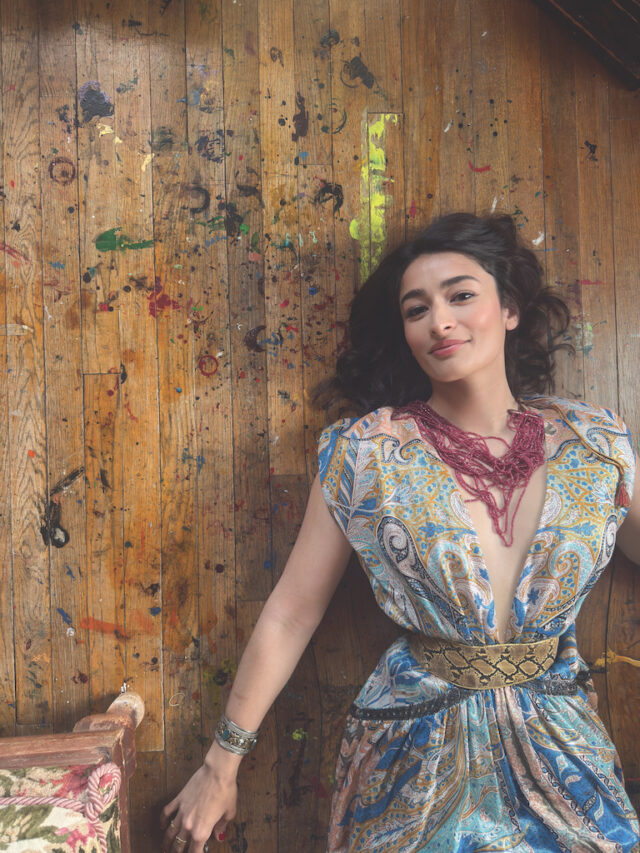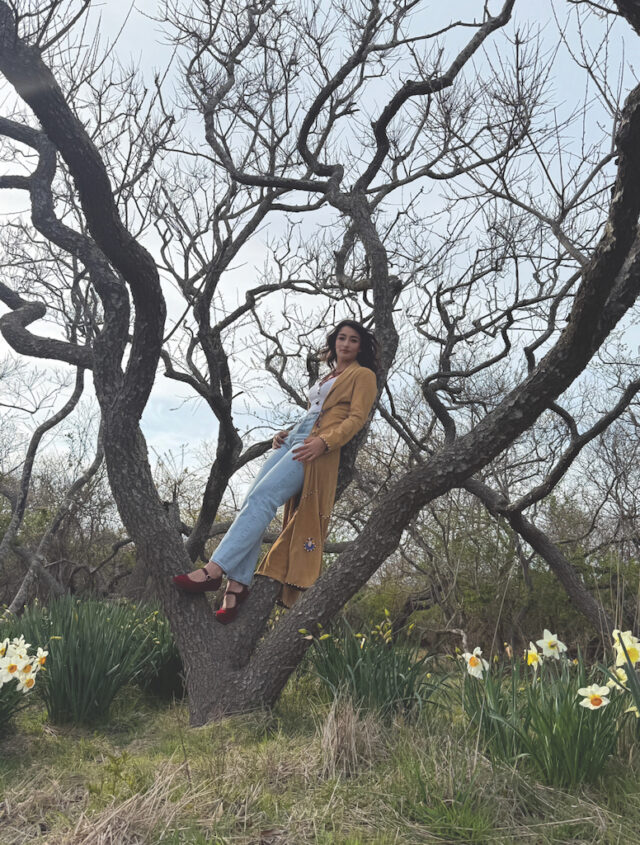
By Jenny Landey
A new kind of conservationist, Zara Beard is both storyteller and strategist, healer and builder, equally at home in the poetry of a children’s book and the precision of an environmental policy proposal. As founder of a new not-for-profit, EchoWild, Beard pioneers a model of conservation rooted in data, responsiveness and local action. Her father, the late photographer and conservationist Peter Beard, instilled in her a deep-rooted love for the natural world, one shaped as much by beauty as by brutal honesty.
With educational programming, habitat restoration and environmental reform already underway, EchoWild is a scalable model designed to protect what’s left, repair what’s broken and restore the wild world we still have. Zara believes that every animal saved is a signal, every child taught is a seed planted. And every act of care is a quiet form of rebellion against despair.
PURIST: Your father, Peter Beard, was renowned for his powerful photography and dedication to wildlife conservation. How did his work influence your decision to carry on his legacy?
Zara Beard: My father’s love for the wild was visceral, all-consuming and contagious. He didn’t just admire nature; he lived in it, often half inside the jaws of it. He gave me a deep reverence for the natural world, but also an unflinching awareness of its realities.
He could be wild, infuriating, brilliant—but he was also profoundly gentle. He’d feed the warthogs by hand, leave out scraps for raccoons and top up the birdbaths with almost religious devotion. He treated every wild creature with absolute fascination, with the awe of a child encountering magic for the first time. A lizard sunning itself on a rock, a weaverbird building its nest—nothing was ever too small or too ordinary to be marveled at.
EchoWild, in many ways, is a continuation of that instinct—to care fiercely, to look closely and to never lose the wonder.
PURIST: As a not-for-profit, EchoWild will play a crucial role in wildlife conservation on Long Island. What can the local community do to support your mission?
ZB: EchoWild wasn’t born from strategy, but from the simple act of paying attention—and the story behind it has been unfolding for a long time. At its heart, it’s about listening to what the animals are telling us and turning those stories into action. There’s so much the community can do. You don’t have to handle an eagle, though if you’re brave, I’ll hand you the gloves. But you can stop using poisons, plant native species, and fish with barbless hooks and biodegradable line. And if you find a baby animal—call first, act second. You can volunteer, reach out, support a cause that speaks to you. Share our work. Tell people about us. The wild doesn’t have a voice in zoning meetings or school boards, but you do, and that matters more than you know.

What The Animals Are Trying to Tell Me
A plea for environmental healing. By Zara Beard
There’s a certain silence that comes with an injured animal. Not fear, exactly—something quieter. A kind of surrender. They don’t cry out. They simply arrive: a bird covered in oil, a turtle with a shell cracked like old china, an owl dying from eating the things that ate the poison. One by one, they begin to tell me what’s gone wrong.
They don’t speak in words, but they speak. And once I learned how to listen, I couldn’t unhear it.
When I first began working in wildlife rescue, I thought the task at hand was simple, if not easy. An animal arrives, I try to save it. Some live. Some don’t. I cleaned wounds, gave fluids, fed them gently and awkwardly and sometimes too late. I thought that if I could just mend enough wings and stitch enough fur back together, it would amount to something like progress.
But after a while, the pattern began to emerge. The fox wasn’t an anomaly. The poisoned owl wasn’t an exception. The same stories kept arriving in different shapes. What I was treating wasn’t just injury—it was evidence. Each animal was telling a part of the same tale, in the only language it had left.
That’s when I realized that rescuing the animal alone was no longer enough. And so, I founded EchoWild. Not because I had any particular desire to start an organization, but because I could no longer bear not to. My idea to treat every injured animal as a data point. A clue. The injuries show me where the land is breaking, and EchoWild is how I plan to begin stitching it back together.
I’ve started designing wildlife-safe fishing kits—barbless hooks, biodegradable line and tools simple enough to prevent a death without needing a hero. I’ve seen too many wings wrapped in filament, too many beaks pierced and bleeding, too many creatures drowned slowly in silence. The kits are small things, but they could stop a great deal of suffering.
So this is how I begin. With my hands doing the best they can, and my heart trying to listen. Because the animals are still speaking. Still showing me where it hurts. And I am finally learning how to hear them. echo-wild.com





